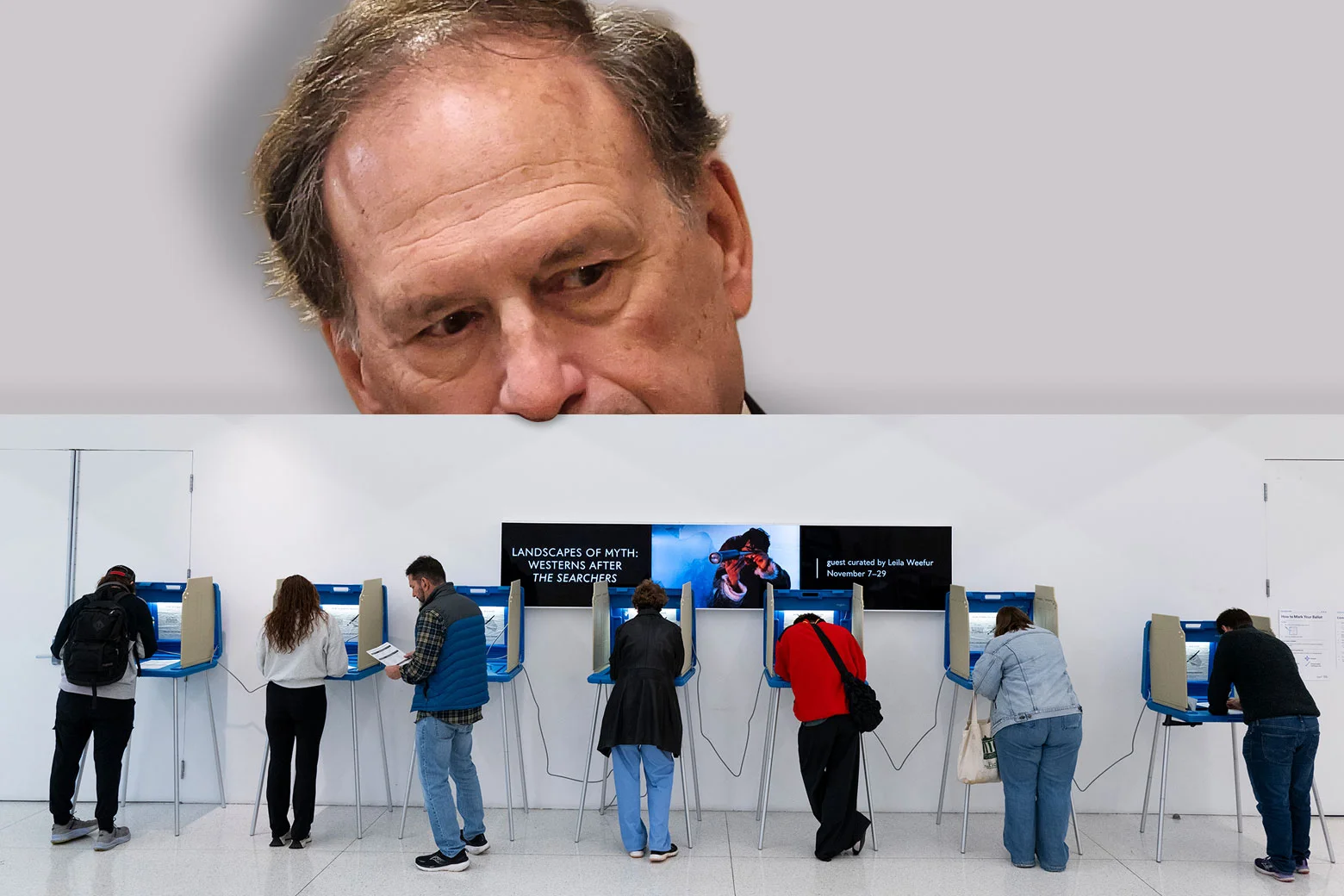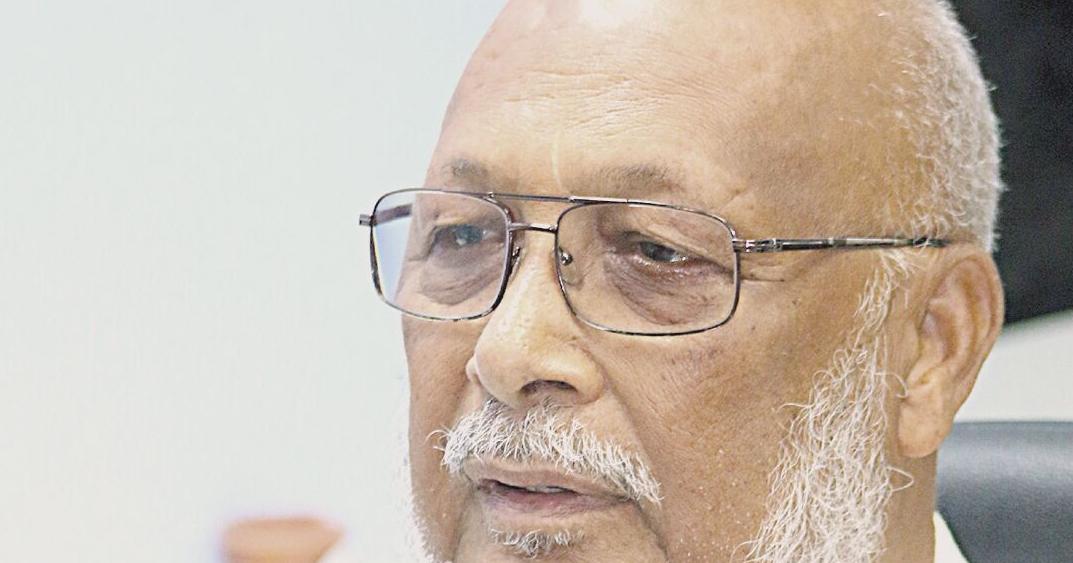Copyright Slate

Sign up for the Slatest to get the most insightful analysis, criticism, and advice out there, delivered to your inbox daily. President Donald Trump’s obsession with mail-in balloting reached the Supreme Court on Monday through a bonkers 5th Circuit opinion written by Trump appointee (and Trump Supreme Court auditioner) Andrew Oldham. Disagreeing with plain statutory text, statutory history, Supreme Court precedent, and the practice of many states, Judge Oldham’s opinion held that Mississippi violates federal law when it accepts ballots postmarked by Election Day that arrive within five days of the election. If the Supreme Court upholds the 5th Circuit in Watson v. Republican National Committee, 29 states and the District of Columbia would have to change their laws to require receipt of virtually all ballots by Election Day, aside from a small class of ballots including those from military and overseas voters. Trump has railed against mail-in balloting for years as being rife with fraud, even though he regularly uses it to vote in Florida. He often calls for states to eliminate the practice, even though Republicans for years have used it without problem in states ranging from Arizona to Florida to Utah (which conducts almost all balloting by mail). He has issued an executive order telling the Department of Justice to pursue litigation against other states to push the argument in the 5th Circuit’s Watson decision and he has promised another executive order on mail-in balloting to come. So it’s no surprise that one of the nation’s Trumpiest federal judges issued an opinion at odds with text, law, and practice to side against voters. As Mississippi explained in its brief seeking Supreme Court review: The federal election-day statutes—2 U.S.C. § 7, 2 U.S.C. § 1, and 3 U.S.C. § 1—set the Tuesday after the first Monday in November in certain years as the ‘election’ day for federal offices. Like all other States, Mississippi requires that ballots for federal offices be cast—marked and submitted to election officials—by that day. And like most other States, Mississippi allows some of those timely cast ballots (mail-in absentee ballots, in Mississippi’s case) to be counted if they are received by election officials a short time after election day (in Mississippi, within 5 business days after election day). Just as a matter of plain text, as Judge James Graves argued in his dissent from the 5th Circuit’s decision not to take the case en banc, the day of an “election” is the day that the voters cast their ballots. It is not the date that election officials receive ballots. Mississippi is then wholly consistent with federal law when it requires ballots be postmarked by Election Day, showing that voters voted no later than the date of the election, and counts ballots in the days after. Oldham’s contortionist opinion reaching a contrary result is especially rich coming from a judge purporting to apply textualism—looking at the meaning of the text as understood by an ordinary English reader at the time Congress passed the statute. By no stretch of the English language can an “election” be the day that election officials receive ballots any more than an election is the day (a month or so after an election) when a state officially declares an election winner. But there are many more arguments than just plain textualism supporting a reversal in Watson. Indeed, the 5th Circuit’s opinion, as Judge Graves showed, is contrary not only to dictionary definitions of the term “election” but also to extensive federal and state caselaw interpreting the meaning of “election day,” and to legislative history. Attorney Richard Bernstein piles on to Graves’ devastating dissent by tracing the statutory history of congressional statutes setting the dates for federal elections. And Adam Unikowsky points out Oldham’s illogical form of argumentation. The position accepted by Oldham that a supposed statutory silence about whether Election Day means voters cast their ballots or the state receives them is also inconsistent with the usual conservative position on elections, which is that states generally get to set the rules for running elections unless Congress explicitly overrides them for federal elections. And Oldham has to jump through even more hoops to explain why military and overseas voters can have their late-arriving ballots counted despite his interpretation of the federal Election Day statutes. As legal arguments go, the question in Watson is not close. The only reasonable conclusion to reach is that an election only requires voters to cast their ballots by Election Day, not the day that officials receive them, and my hope and expectation is that the Supreme Court took this case to reverse it and let Mississippi make the policy choice to accept ballots postmarked by Election Day. Congress has given states that flexibility, but Oldham wants federal courts to take it away not just in Mississippi but around the country. We should look at the 5th Circuit in the broader context of a war on voting. It is unsurprising that Oldham reached such a voter-hostile and Trump-friendly conclusion. Back in 2021, in the midst of the COVID pandemic, Oldham dissented from a 5th Circuit decision on whether it violated federal law—not Texas law—for Harris County, Texas, to allow drive-through voting in 2020, something very much appreciated by those who did not want to get sick when voting. That dissent, like his majority opinion in Watson, seems written for an audience of one, Donald Trump, who I expect will get at least one more Supreme Court appointment next summer when either Justice Samuel Alito (for whom Watson clerked) or Justice Clarence Thomas retires. We have seen many Federalist Society and conservative judges hold the line on blatantly political and unsupported arguments advanced by Trump and his allies to make voting harder and election subversion easier. Judge Oldham’s opinion shows that not only will some judges not hold that line, they are ready to be partners with Trump and his allies in a new wave of voter suppression.



